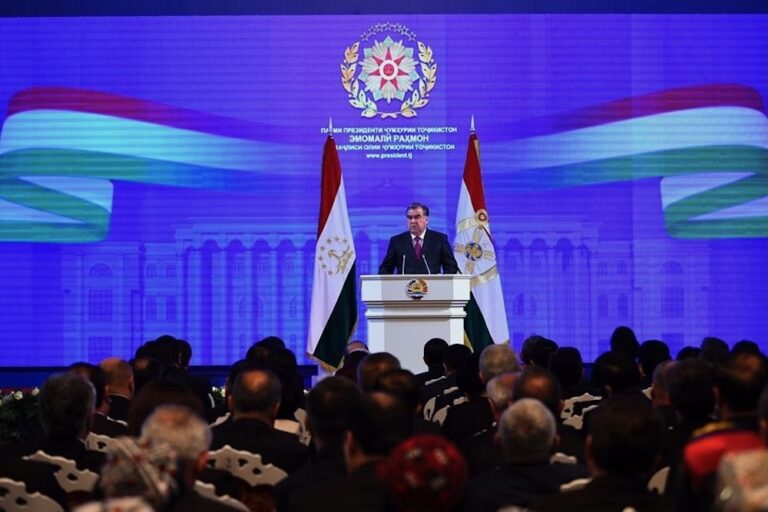A Tajik court has decided to close a leading human rights organization in Tajikistan. The Association of Young Lawyers investigates torture and serves as an advocate for the rights of army conscripts and other vulnerable groups. It was shut down on what appear to be minor charges.
(Human Rights Watch/IFEX) – 25 October 2012 – A court’s decision on October 24, 2012 to close a leading human rights organization in Tajikistan is a serious blow to the country’s civil society and should be reconsidered in line with Tajikistan’s international obligations to uphold the freedom of association, Human Rights Watch said today. The group, the Association of Young Lawyers “Amparo,” investigates torture and serves as an advocate for the rights of army conscripts and other vulnerable groups. The rights group was shut down on what appear to be minor charges.
“This case has appeared politically motivated and devoid of substance from the beginning,” said Hugh Williamson, Europe and Central Asia director at Human Rights Watch. “It is a transparent attempt to silence voices working on critically important issues such as torture and the rights of military recruits and a major step backward for human rights in Tajikistan.”
A court in Tajikistan’s northern city of Khujand granted a motion by the Justice Ministry to shut down Amparo, ruling that it was operating without a proper license. Justice Ministry officials alleged that Amparo had changed its office location without registering its new address with the ministry. The officials also said that Amparo was unlawfully operating a website, conducting activities outside of the northern Sughd region, the area where Amparo was originally registered, and holding unauthorized training for high school students on human rights issues, including the rights of army conscripts to be free of torture and ill-treatment.
Amparo representatives told Human Rights Watch that the allegations are politically motivated. They said they had informed authorities of the address change, that they had conducted all training in accordance with existing law and an agreement with the Education Ministry, and that they were not prohibited by any law from maintaining a website. Furthermore, Amparo representatives told Human Rights Watch, at the time the motion was filed Amparo had an application for country-wide registration pending with the Justice Ministry.
Amparo, whose members include more than 40 rights activists, journalists, and educators, was founded in 2005 by a group of young lawyers who sought to empower youth with human rights education. Amparo actively investigates and monitors the rights of Tajik army recruits, the poor, orphans, and the disabled, among other vulnerable social groups.
For several years the group has been an active member of the Coalition against Torture, which brings together several leading Tajik civil society organizations that collect and report on torture allegations from across the country and jointly encourage the government to meet its international commitments to end the practice.
The Coalition has filed a shadow report on torture with the UN Committee against Torture in Geneva. Beyond investigating cases of torture and ill-treatment, Amparo also conducts training and summer camps for various groups, primarily youth, to raise awareness about constitutional protections and international human rights norms.
The Justice Ministry filed a motion to liquidate Amparo on June 29, the day after ministry officials visited the group’s Khujand office to conduct an unannounced, wide-ranging audit. The visit came just weeks after a representative of Amparo spoke publicly about the need to monitor reports of torture and severe forms of hazing in Tajikistan’s army at a civil society seminar on torture organized by the European Union in Dushanbe. One month earlier, Amparo representatives provided a briefing about the abuse and hazing of military recruits in military facilities to the UN special rapporteur on torture, Juan Mendez, during his visit to Tajikistan.
After the Justice Ministry filed the case against Amparo, a broad coalition of Tajik civil society groups appealed to Tajik President Emomali Rahmon to drop it.
“Amparo plays a crucially important role in raising legal literacy and taking on topics that have historically gone unaddressed in Tajikistan,” Williamson said. “No one believes for a minute that the Justice Ministry went after Amparo because of charges as minor as these. The Tajik judicial and other authorities should immediately reinstate Amparo’s license to operate and urgently reconsider this decision in line with Amparo’s members’ internationally guaranteed rights to freedom of association.”
Click here for more Human Rights Watch reporting on Tajikistan.


